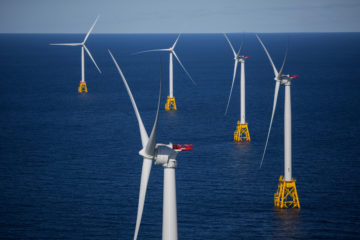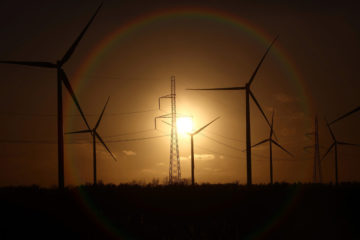Britain Must Give More Incentives for Clean Energy, Adviser Says

©2015 Bloomberg News
NQPQI06S972H
(Bloomberg) — U.K. ministers must extend incentives for low-carbon energy production to spur investments into the next decade, the government’s global-warming adviser said.
Clear policies are required now to ensure Britain stays on course to meet self-imposed greenhouse-gas limits, the Committee on Climate Change said Tuesday in its annual report on the country’s carbon-reduction efforts.
Programs to encourage renewable power and heating and increase energy efficiency expire by April 2021. Government moves to replace, extend or drop such initiatives will affect billions of pounds of investments across the construction, energy and transport industries. The U.K. has pledged to cut heat-trapping emissions 80 percent by 2050 from 1990 levels.
“A whole series of policies end during the course of this parliament, and investors are trying to make decisions that will result in projects and revenues in the 2020s in the absence of much visibility over policy,” Matthew Bell, the committee’s chief executive officer, said by phone.
Britain has successive five-year “carbon budgets” that spell out how much the country can emit. Yet a decision this month to scrap subsidies to new onshore wind projects has raised doubts that the new government is committed to cutting emissions at the lowest cost.
Alternative Path
The move shows Prime Minister David Cameron’s Conservatives aren’t taking the cheapest path to reducing carbon, said John Gummer, the committee’s chairman and a member of the upper chamber of parliament.
“We have said what is the most cost-efficient way of doing it and they have decided not to do it that way,” said Gummer, himself a Conservative and former environment secretary. “They must say what they’re going to do.”
The nation is on target to meet its second carbon budget which runs 2013-2017, with emissions last year totaling 520 megatons, within the permitted annual average of 556 megatons, according to the committee. That puts the U.K.’s greenhouse-gas output 36 percent below 1990 levels.
“There’s still much work to do and we will continue to power our move to a low-carbon economy at best value to consumers,” the Department of Energy and Climate Change said in an e-mailed statement.
With incentive programs expiring, investors need certainty further into the future, according to the committee.
Maximum Spend
Support for low-carbon power generation is limited by the Treasury’s Levy Control Framework, which caps the maximum annual spend on assistance to the industry through to 2021. The committee said spending should be detailed to 2025, with rolling annual updates.
The committee called for extensions to the Renewable Heat Incentive and the Energy Company Obligation, a program of domestic energy-efficiency improvements. It also made recommendations on policies to adapt to the effects of climate change, including flooding, soil erosion, more intense rainfall and drought.
The government has already produced one report on adaptation and its next one in 2018 should “have a clearer focus on the key risk areas” such as flooding and houses at risk, overheating, loss of soil and the impact on agriculture, according to committee member John Krebs.
To contact the reporter on this story: Alex Morales in London at amorales2@bloomberg.net To contact the editors responsible for this story: Alan Crawford at acrawford6@bloomberg.net Amanda Jordan, Randall Hackley







No Comment